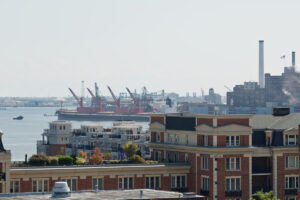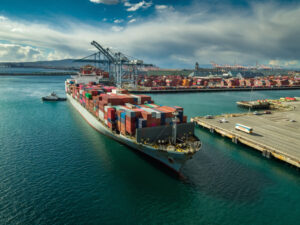PSA Antwerp has signed two agreements with contractors to execute large scale works to refurbish its Europa Terminal on the river Scheldt.
The first agreement was signed with Austrian crane builder Kuenz to order 14 new automated stacking cranes (ASCs) for the terminal.
When fully completed, the Europa Terminal will have 48 new ASCs to operate its upgraded yard.
This new way of handling will result in a significant capacity increase according to PSA, as in the future containers will be able to be stacked with higher density of up to six high, instead of just three high.
Kuenz will design and produce the ASCs together with systems integration specialist ABB.
Parts of the first six cranes will be delivered in early 2024 and assembled on site. Testing is expected to start in Q3 2024.
Kuenz and its partners will start the process of building the next four modules (eight cranes) in the third quarter of 2024, following a similar timeline as the first batch.
READ: Port of Antwerp-Bruges, PSA Antwerp greenlight €335-million Europa Terminal renewal
The second agreement was inked with Stadsbader/DSG to upgrade the civil and electrical infrastructure for the first phase of the works at Europa Terminal.
The works – that include preparing the yard for the new automatic stacking ASCs, quay cranes and new truck flows – will start on 9 January 2023 and are expected to be completed by Q2 2025.
READ: Port of Felixstowe becomes first in Europe to launch autonomous trucks into ops
The refurbishment project at Europa Terminal, estimated at EUR335 million ($365 million), is necessary to increase the port’s handling capacity for the next generation of vessels (Ultra Large Container Vessels – ULCVs).
These works will expand the container terminal’s capacity by more than 700,000 TEU per year and help PSA Antwerp reach its sustainability goals to reduce its carbon emissions by 50 per cent by 2030 and become completely carbon neutral by 2050.
The Port of Antwerp was recently impacted by strike action as swathes of workers voted to walk out.
Action began from Belgian trade unions 9 November and ended on 10 November.









